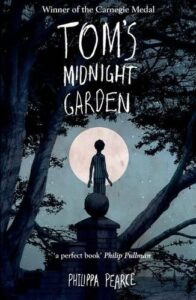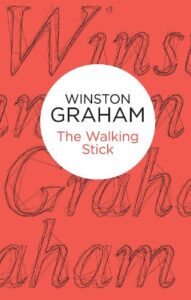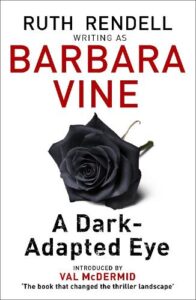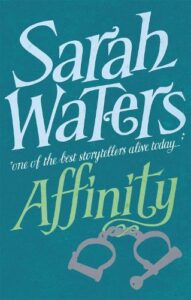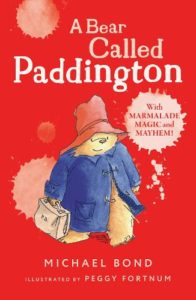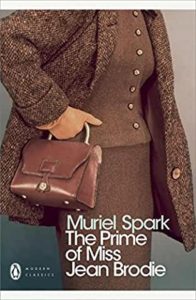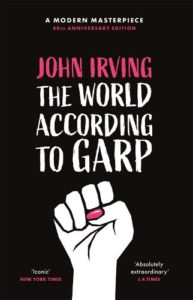Decades – Compiling the Ultimate Library with Chris Curran
Imagine you had a brand new library but you didn’t have any books yet. Rows and rows of empty shelves all demanding books to fill them. But which books? This was the question I first asked back in January 2021. If you could assemble a new library of nothing but the very best books where would you start?
I knew I could not answer that question alone so each week I invite a booklover (authors, publishers, journalists or bloggers) to add new books to my Ultimate Library. I call it my Decades Library for reasons I shall soon explain.
Each week my guest is asked to nominate five books which I will then add to my Decades Library. There are just two rules which govern their choices but it can apparently cause a bit of head scratching…
1 – You Can Choose ANY Five Books
2 – You May Only Select One Book Per Decade From Five Consecutive Decades
This is why my collection is called the Decades Library.
This week I am thrilled to be able to pass the Decades curator hat to Chris Curran. Chris has selected five brand new reading recommendations for the Decades Library and I know you’re going to love them as much as I do.
 Chris Curran’s sixth psychological suspense novel, When the Lights Go Out, publishes on December 2nd . Chris also writes as Abbie Frost and her latest under that name is The Guesthouse. Her books have been praised in the media as: truly gripping (Sunday Express), dark, claustrophobic and full of suspense (The Courier) addictive and fun (Daily Mail), addictive (The Sun), chilling (Waitrose Magazine) thrilling (Sublime Horror)
Chris Curran’s sixth psychological suspense novel, When the Lights Go Out, publishes on December 2nd . Chris also writes as Abbie Frost and her latest under that name is The Guesthouse. Her books have been praised in the media as: truly gripping (Sunday Express), dark, claustrophobic and full of suspense (The Courier) addictive and fun (Daily Mail), addictive (The Sun), chilling (Waitrose Magazine) thrilling (Sublime Horror)
Best selling author, Alex Lake, describes The Guesthouse as a: full of suspense…gripping mystery. And Edgar Award winner Alex Marwood calls When the Lights Go Out: wonderfully mystifying and claustrophobic; and sad and thoughtful to boot.
Chris also writes short stories and has twice been shortlisted for the CWA Margery Allingham award.
Find out more about Chris/Abbie and all her writing:
on Twitter: @FrostyAbbie
Instagram: Chris Curran (@chriscurranwriter) • Instagram photos and videos
Website: https://chriscurranauthor.com/
DECADES
Tom’s Midnight Garden – Philippa Pearce
I had to start with the 1950s in order to mention this one because it could well be my favourite book of all, surpassing even Rebecca which I adore. I taught young children and when people discovered that I also wrote stories, they always assumed these were for children. The truth is that, while I love children’s books, I have never tried to write one because the best of them are just so good! And the best are definitely not only for children.
I’ve read Tom’s Midnight Garden many times and it never fails to enthral me and to leave me thinking, smiling and crying all at the same time. As I grow older the tears flow more easily and I find more and more things in the story that speak to me. Like all great children’s books, it is both simple and profound. In a tale of two lonely children, playing together in a garden, Pearce manages to illuminate some of the great mysteries of life and living. She capitalises the word Time throughout the book, as well as Past, Present and Future because at its heart the story is about the passage of time. About childhood and aging, love and loss and how time alters us completely and yet leaves us the same.
Tom Long is forced to spend the summer with an aunt and uncle he barely knows in a flat, that, although part of a once grand house, has no garden. Banished from home because his brother is ill with measles, Tom is distraught at the loss of his playmate and of all the adventures they had planned together for the school holidays. But when the clock down in the entrance hall strikes thirteen one night he discovers a door to the wonderful midnight garden. Here he meets another lonely child, an orphan called Hatty. They spend nights exploring the garden and its surroundings as Time behaves as mysteriously as the appearing and disappearing garden.
Tom gradually comes to believe that Hatty must be a ghost, but is surprised to find that to her it’s he who is the phantom. They discover the truth during a resolution that is poignant perfection.
The Ivy Tree – Mary Stewart
Mary Stewart had huge success in the ‘50s and ‘60s, with her sparkling thrillers, but seems to have been forgotten by many readers today. I could choose any of her novels as a favourite, and her first, Madam Will You Talk? encapsulates everything I love about her books. But that was written in the 1950s so I’ve gone for The Ivy Tree from 1961. The books are often called romantic thrillers, but I think this is misleading. Whilst they all contain at least a hint of romance, along with beautiful settings, what matters is the adventure. And it’s always the heroine who pushes the story onward, not in pursuit of a man, but in her determination to solve the mystery. She faces the dangers independently, relying on her own courage and ingenuity.
The Ivy Tree is darker than many of its predecessors and, instead of the exotic locations (for the time) that Stewart often used, it’s set in the Northumberland countryside, which was deeply familiar to Stewart. The book is in the tradition of Josephine Tey’s Brat Farrar (and Stewart acknowledges her debt) and Du Maurier’s The Scapegoat, where a lookalike is persuaded to take the place of a missing person from a wealthy family.
Annabel was the much-loved granddaughter and heir of Matthew Winslow and, with Matthew close to death, Annabel’s cousin, Connor, persuades Mary Grey, a Canadian visiting England, to impersonate Annabel and claim the inheritance. But can Mary convince those who loved Anabel that she has indeed returned?
When it becomes clear that Connor and his loyal sister, Lisa, who have trained Mary to mimic Annabel, are ignorant of important aspects of Annabel’s life, Mary realises their plan is in jeopardy. Anabel’s other young cousin, Julie, reveals that Anabel had an adulterous affair with local landowner, Adam Forrest. Both Julie and Adam loved Annabel so will they, or her grandfather, see through the subterfuge?
As Mary’s suspicions about what actually happened to Annabel grow more disturbing, she fears there is no one she can trust. But can any of them trust her? Stewart keeps us guessing until the thrilling ending.
The Walking Stick – Winston Graham.
Most well-known nowadays for his Poldark series, Graham also wrote amazing psychological suspense and The Walking Stick, is a twisted love story. Deborah Dainton has a withered leg as a result of childhood polio and, as the daughter of two high-powered doctors, she fears her parents see her as their failure. She is attractive, but her lack of confidence means she can only watch as the men swarm around her two beautiful sisters.
On the surface she is resigned to a life without romance and focused on her job in a renowned auction house. But in reality Deborah longs for love and begins to believe she has found it with unsuccessful artist, Leigh Hartley. He’s a bit rough around the edges for her family and even Deborah can see that he has some dubious friends, but she warms to his vulnerability and his tenderness towards her is irresistible.
Leigh lives in a bohemian warehouse apartment in London’s Docklands (a great portrait of that area before gentrification) and when they are there the fairy tale feels utterly real for Deborah. So real that she is willing to compromise all her principles to keep it alive. This is no murder mystery, but the crime scenes, when they come, are nail-biting.
A Dark Adapted Eye – Barbara Vine
How could I leave out Ruth Rendell’s brilliant alter ego? The title is inspired, but I have to wonder if modern algorithms would warn publishers against it!
The book begins on the morning of an execution before moving back to explore the events that led to the murder. It’s the story of an intense, and in the end unhealthy, relationship between two sisters – staid Vera and glamourous, flighty Eden. Over the years romances, marriages and children, as well as WW2, intervene to complicate their lives and their powerful bond sours. When they get into a fight for the custody of young Jamie, each claiming to be his birth mother, the stage is set for tragedy.
Years later their niece, Faith, tries to unravel the complexities of their relationship and discover the truth about Jamie’s parentage.
Affinity – Sarah Waters
There seems to be a theme developing here, because Sarah Waters Affinity also deals with misguided love and betrayal. Waters third novel, Fingersmith, reveals her as the mistress of the OMG twist that is nevertheless totally convincing. In her second, Affinity, the twist is more subtle, but the book is a masterpiece of suspense.
The setting is a Victorian women’s prison, where inmates are kept in almost total isolation, seeing only their warders and occasional lady visitors. Unhappy spinster, Margaret Prior, is one such visitor. She becomes fascinated by disgraced medium, Selina Dawes, who was sentenced for apparently bringing about the death of a woman attending one of her seances.
As the women grow closer, the tension tightens so much that it becomes almost impossible to breathe as you wait and hope for the ending they both long for. When it finally comes the devastating twist is gasp-inducing, but almost a relief after the nerve-jangling wait.
I am extremely grateful to Chris for taking time to make these fantastic selections. I am even more grateful for her patience while we experienced repeated and frustrating tech issues – these selections arrived in the third email account I use. It makes me worry I may have missed other messages and be oblivious to the fact they have been sent.
One thought did strike me about Chris’s choices – in 18 months of Decades there has not been a Ruth Rendall book yet. Still many big name authors awaiting their Decades debut. It is a good job I can promise
DECADES WILL RETURN
